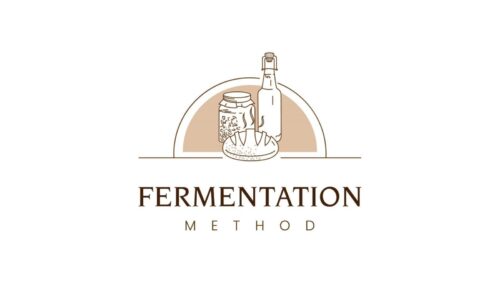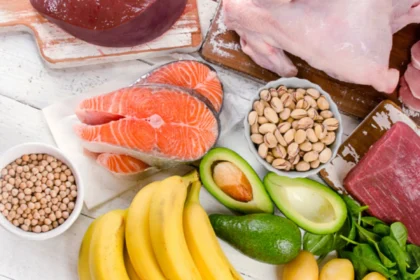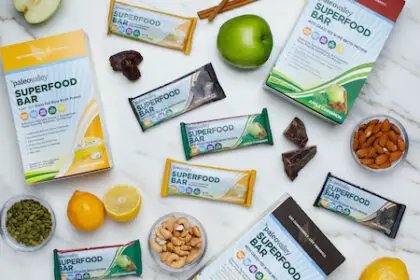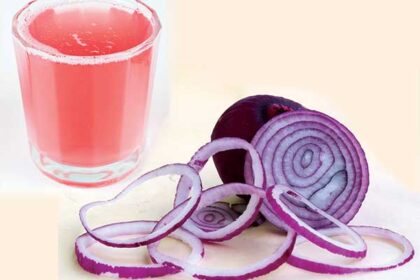The human gut is a thriving ecosystem of trillions of bacteria, known as gut microbiota, that play a pivotal role in maintaining our overall health and well-being. These microscopic inhabitants contribute significantly to digestion, nutrient absorption, immune function, and even impact our mood and mental health.
Just like any living organism, gut bacteria need sustenance to thrive, and their preferred diet can significantly influence their composition and activity. Research has increasingly demonstrated that our dietary choices have a direct impact on the health and diversity of these beneficial gut microbes.
In recent years, scientists and nutritionists have delved deeper into the complex relationship between diet and gut microbiota(gut bacteria). They have identified specific foods that have a profound influence on shaping a healthy and diverse gut bacterial community. Incorporating these foods into our daily diet can not only enhance digestive health but also foster a balanced and robust gut microbiome.
In this article, we will explore five remarkable foods that have been scientifically proven to promote a happy and flourishing gut environment. By consistently adding just one of these gut-friendly foods to your diet, you can pave the way for a harmonious symbiosis with your gut bacteria and unlock a host of potential health benefits.
So, let’s dive into the world of gut bacteria and discover the key to cultivating a thriving gut ecosystem that supports our overall health and vitality.
The human gut is a thriving ecosystem of trillions of bacteria, known as gut microbiota, that play a pivotal role in maintaining our overall health and well-being. These microscopic inhabitants contribute significantly to digestion, nutrient absorption, immune function, and even impact our mood and mental health.
Just like any living organism, gut bacteria need sustenance to thrive, and their preferred diet can significantly influence their composition and activity. Research has increasingly demonstrated that our dietary choices have a direct impact on the health and diversity of these beneficial gut microbes.
In recent years, scientists and nutritionists have delved deeper into the complex relationship between diet and gut microbiota. They have identified specific foods that have a profound influence on shaping a healthy and diverse gut bacterial community.
Incorporating these foods into our daily diet can not only enhance digestive health but also foster a balanced and robust gut microbiome.
In this article, we will explore five remarkable foods that have been scientifically proven to promote a happy and flourishing gut environment. By consistently adding just one of these gut-friendly foods to your diet, you can pave the way for a harmonious symbiosis with your gut bacteria and unlock a host of potential health benefits.
The Gut-Microbiome Connection:
A landmark study examined the gut microbiomes of 123 non-obese individuals and 169 obese individuals to better understand the link between gut bacteria and overall health. The results were eye-opening.
People with low amounts of healthy bacteria had significantly higher levels of body fat, worse insulin resistance, compromised cholesterol profiles, and increased inflammation compared to those with a well-balanced gut microbiome.
What’s even more alarming is that individuals with the lowest levels of healthy bacteria were more prone to gaining weight over time, emphasizing the pivotal role of gut bacteria in weight management.
This phenomenon, known as metabolic endotoxemia, occurs when harmful bacteria in the gut produce toxins that are absorbed into the bloodstream, triggering chronic inflammation. This inflammation disrupts insulin signaling and function, leading to insulin resistance—a condition where cells become less responsive to insulin, causing excess glucose to remain in the bloodstream, ultimately promoting weight gain and other metabolic disturbances.
The Power of Proper Nutrition:
It’s evident that our dietary choices not only impact our personal health but also directly influence the behavior of our gut bacteria. In essence, we are the masters of our microbiome. By understanding what our gut bacteria prefer to eat, we can take charge of cultivating a healthy and thriving gut environment.
Healthy gut bacteria thrive on a diet of whole, fresh, and nutrient-dense foods. These foods are rich in polyphenols, fiber, and prebiotics—essential compounds that support the growth of beneficial gut bacteria. Emphasizing a diet abundant in a variety of fruits, vegetables, whole grains, legumes, nuts, and seeds can provide the necessary nourishment for a thriving gut microbiome.
On the other hand, feeding our gut bacteria with processed and junk foods nurtures the growth of harmful microbes, leading to a leaky gut—the condition where the intestinal barrier becomes permeable, allowing toxins to enter the bloodstream and cause further inflammation and food sensitivities.
The Vicious Cycle:
The consequences of an imbalanced gut ecosystem extend far beyond digestive discomfort. As the inflammation caused by harmful gut bacteria hinders insulin function, it prompts more weight gain, especially in the form of visceral fat—a type of fat stored around the organs and known to contribute to health complications.
As the cycle continues, weight gain can become increasingly challenging to manage, leading to a potential snowball effect of health issues. The more weight gained, the more difficult it becomes to regulate insulin, leading to greater fat storage and heightened inflammation—a perilous loop that can impact overall health and well-being.
Empowering Your Microbiome:
The good news is that our microbiome is remarkably responsive and adaptable. With every single bite of food, we have the power to positively influence our gut flora. So, even the next meal you choose to consume can take you a step closer to cultivating a healthier gut environment.
By prioritizing whole, real foods and adopting a diet rich in polyphenols, fiber, and prebiotics, we can nurture our gut bacteria, promote diversity, and support our overall health and well-being. With a deeper understanding of how our dietary choices directly shape the health of our gut microbiome, we can embrace the role of “microbiome managers” and embark on a journey towards a healthier and more balanced lifestyle.
5 Foods To Consume Regularly
Consuming fermented foods regularly can be incredibly beneficial for your gut health and overall well-being. Fermented foods are rich in beneficial probiotics, which are live microorganisms that promote a healthy gut microbiome.
These probiotics can improve digestion, boost the immune system, and have various other positive effects on our health. Here are five fermented foods that you should consider adding to your diet:
Yogurt:
Yogurt is one of the most well-known fermented foods and an excellent source of probiotics. It is made from milk that has been fermented by beneficial bacteria, typically strains of Lactobacillus and Bifidobacterium.
These probiotics help maintain a healthy balance of gut bacteria, support digestion, and may even improve lactose intolerance symptoms. Additionally, yogurt is rich in calcium, protein, and other essential nutrients, making it a wholesome addition to your diet.
Sauerkraut:
Sauerkraut is a traditional fermented food made from shredded cabbage and salt. During fermentation, beneficial bacteria convert the sugars in the cabbage into lactic acid, giving sauerkraut its tangy flavor.
It is a good source of probiotics, vitamins C and K, as well as various antioxidants. Consuming sauerkraut can aid digestion, support the immune system, and contribute to a healthy gut environment.
Kimchi:
Kimchi is a popular Korean side dish made from fermented vegetables, primarily cabbage and radishes, seasoned with various spices and seasonings. Like sauerkraut, kimchi undergoes the fermentation process that produces probiotics and enhances its nutritional content. Kimchi is rich in vitamins A and C, and it also contains beneficial compounds like beta-carotene and flavonoids. Regular consumption of kimchi can support gut health, reduce inflammation, and bolster the immune system.
Kombucha:
Kombucha is a fermented tea beverage made from sweetened black or green tea, using a symbiotic colony of bacteria and yeast (SCOBY). The fermentation process produces probiotics, organic acids, and B vitamins. Kombucha has gained popularity for its potential health benefits, including improved digestion, detoxification support, and enhanced liver function. However, it’s essential to choose commercially-produced kombucha to ensure it is properly fermented and free from harmful pathogens.
Miso:
Miso is a traditional Japanese seasoning made from fermented soybeans, rice, barley, or other grains. It is commonly used to make miso soup, a staple in Japanese cuisine. Miso is a concentrated source of probiotics, protein, vitamins, and minerals. Consuming miso can support gut health, improve digestion, and provide a range of nutrients. It’s important to note that miso is relatively high in sodium, so moderation is key, and be sure to purchase organic, as most soy is heavily sprayed with pesticides.
Kefir:
Kefir is a fermented dairy product made from milk, typically cow’s or goat’s milk. It is similar to yogurt but has a thinner consistency and a slightly tangy flavor. Kefir is rich in a diverse range of probiotics, including lactobacilli and yeast. These beneficial microorganisms can support gut health, aid digestion, and enhance nutrient absorption. Kefir also contains essential vitamins, minerals, and proteins, making it a nutritious addition to your diet. For those who are lactose intolerant or prefer a non-dairy option, water or coconut milk kefir is available.
Tempeh:
Tempeh is a traditional Indonesian fermented soy product with a firm texture and nutty flavor. It is made by fermenting soybeans with a beneficial mold called Rhizopus oligosporus. During the fermentation process, the soybeans bind together, forming a compact cake-like structure. Tempeh is a fantastic source of plant-based protein, essential amino acids, and various vitamins and minerals. It is also easier to digest compared to regular unfermented soybeans. Consuming tempeh can support gut health, provide plant-based protein for vegetarians and vegans, and offer a wide array of nutrients. Again, be sure your soy products are marked organic to avoid any pesticide residue.
Natto:
Natto is a traditional Japanese fermented soybean dish that is distinct from tempeh. It is made by fermenting soybeans with the beneficial bacterium Bacillus subtilis. Natto has a unique sticky texture and a strong flavor. While it is soy-based, it differs from tempeh in its production process and nutritional profile. Natto is an excellent source of probiotics and vitamin K2, which is important for bone health and cardiovascular health. It also contains protein, fiber, and other essential nutrients. For those who enjoy the taste and texture of natto, it can be a valuable addition to a gut-friendly diet.
Fermented Pickles:
Fermented pickles, also known as lacto-fermented pickles, are cucumbers or other vegetables that have been preserved through fermentation. During the fermentation process, beneficial bacteria like Lactobacillus convert the sugars in the vegetables into lactic acid, creating a tangy and delicious flavor. Fermented pickles are rich in probiotics and enzymes that support digestion and gut health. Unlike commercially prepared pickles made with vinegar, fermented pickles retain their live cultures and offer more health benefits. You can make them at home or look for them in the refrigerated section of health food stores.
Remember, the key to a healthy gut microbiome is diversity. Incorporating a variety of fermented foods, whether soy-based or not, can provide a wide array of beneficial probiotics and nutrients to support your gut health and overall well-being.
Turn Your Kitchen Into A Probiotic Factory With The Fermentation Method! An Easy To Follow Recipe E-Book With Videos, Showing You How To Make Everything Listed Above Plus Cool Recipes Like Sourdough Cinnamon Rolls And Sourdough Chips And Fermented Salsa!
Click Here To Learn More!
In conclusion, gut bacteria play a vital role in shaping our overall health and well-being. The foods we consume significantly impact the composition and activity of these beneficial microbes, influencing everything from weight management to immune function.
By understanding the connection between our diet and gut microbiome, we gain the power to cultivate a thriving gut ecosystem, bolster our health, and enhance our quality of life.
Incorporating gut-friendly foods rich in polyphenols, fiber, and prebiotics into our daily diet can empower us to take charge of our gut bacteria and promote a harmonious relationship with these microscopic allies. With every meal, we have the opportunity to positively impact our microbiome, working towards a healthier, happier gut, and ultimately, a healthier, happier self.
So, embrace the power of proper nutrition, prioritize your gut health, and pave the way to a brighter and more vibrant future!






